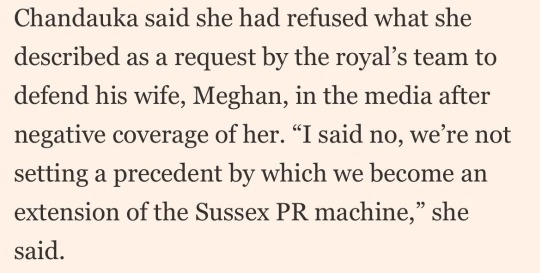#term limits
Explore tagged Tumblr posts
Text



Source | Dec 21
Gerontocracy, baby
559 notes
·
View notes
Text

President Biden set to announce support for major Supreme Court reforms
Tyler Pager and Michael Scherer at WaPo:
President Biden is finalizing plans to endorse major changes to the Supreme Court in the coming weeks, including proposals for legislation to establish term limits for the justices and an enforceable ethics code, according to two people briefed on the plans.
He is also weighing whether to call for a constitutional amendment to eliminate broad immunity for presidents and other constitutional officeholders, the people said, speaking on the condition of anonymity to discuss private deliberations. The announcement would mark a major shift for Biden, a former chair of the Senate Judiciary Committee, who has long resisted calls to make substantive changes to the high court. The potential changes come in response to growing outrage among his supporters about recent ethics scandals surrounding Justice Clarence Thomas and decisions by the new court majority that have changed legal precedent on issues including abortion and federal regulatory powers. Biden previewed the shift in a Zoom call Saturday with the Congressional Progressive Caucus. [...]
Term limits and an ethics code would be subject to congressional approval, which would face long odds in the Republican-controlled House and a slim Democratic majority in the Senate. Under current rules, passage in the Senate would require 60 votes. A constitutional amendment requires even more hurdles, including two-thirds support of both chambers, or by a convention of two-thirds of the states, and then approval by three-fourths of state legislatures. The details of Biden’s considered policies have not been disclosed. A White House spokesperson declined to comment.
[...] Eight Democratic senators have co-sponsored a bill that would establish 18-year terms for Supreme Court justices, with a new justice appointed every two years. The nine most recently appointed justices would sit for appellate jurisdiction cases, while others would be able to hear original jurisdiction cases or to step in as a substitute if one of the most recent nine is conflicted or cannot hear a case for another reason.
Good News! President Joe Biden set to endorse major reforms to SCOTUS, such as term limits and an ethics code with actual teeth.
#SCOTUS#SCOTUS Reform#Joe Biden#Courts#Judiciary#Term Limits#Ethics#SCOTUS Ethics Crisis#Congressional Progressive Caucus#Biden Administration
358 notes
·
View notes
Text
Missing congresswoman with dementia doesn’t even break the top ten of political stories of 2024.
"They will do literally ANYTHING but retire"
"This is the strongest evidence that term limit must become a thing'
@pearlmania500
#congress#republicans#politics#2024 presidential election#gop#conservatives#republican party#trump#house gop#gop hypocrisy#trump administration#fuck the gop#democrats#black lives matter#congresswoman#capitalism#term limits
250 notes
·
View notes
Text
168 notes
·
View notes
Text
"It's a cover up and the prince is involved."
Meghan Markle was NOT scheduled to attend the polo fundraiser, and her surprise presence disrupted the pre-planned choreographed events
The Sussex PR Machine unleashed against Dr. Sophie Chandauka
Sophie Chandauka Sky News Interview:
At the behest of Prince Harry, The Sussex Machine is harassing & bullying those affiliated with the Sentebale organization
Prince Harry's reputation tanked the fundraising & no one was courageous enough to confront the elephant in the room
Loss of corporate, family and individual sponsors due to Harry's reputation
Belligerent Prince is the biggest RISK to the organization
Prince Harry interfered in the investigation
When the prince is in the room no one has the courage to speak the truth. Harry walked into the room & demanded the appointment w/immediate effect a new board member & everyone had to tolerate it
Prince Harry visited Africa last year for the 1st time in 5 years because Dr Chandauka asked him to visit. The people have been doing the work & will continue to do the work.
Prior to Dr Chandauka there were no term limits. Board members overstayed tenure by charity commission guidance some 5, 10, 15, 19 years
Grifting: April 2024 US Polo fundraiser complicated by Netflix. A generous family agreed use of their polo grounds at a significant discount until Harry informed players 1 month before the event of Netflix involvement
Sentabale lost the venue due to NETFLIX bc the fundraiser became a COMMERCIAL enterprise
A new family agreed to host the Sentabale polo fundraiser
Meghan Markle said she would NOT attend the fundraiser
Disruption: The Duchess surprised event organizers with her presence on the day of the event AND she showed up with a very FAMOUS friend (Serena Williams)
Dr Chandauka has endured months of bullying & harassment designed to eject her from the organization
Harry briefed sponsors ($) against Dr. Chandauka & the charity to tank fundraising in an effort to hurt her performance & tenure with the organization
Before her appointment as chairwoman in July 2023, Chandauka served on Sentebale’s board of trustees from 2008 to 2014. She has also held roles at Meta and Morgan Stanley, and leads a life sciences company in New York, where she lives.
youtube
There had been a concerted effort by certain trustees “to destabilise and remove Sophie” from her position.
Chandauka said she first felt tension between Prince Harry, the Duke of Sussex, and herself in April 2024.
“Harry then demanded that she make a statement to the press, basically saying ‘Megan wasn’t mean to me’, and she refused to do that.”
Chandauka said she had refused what she described as a request by the royal’s team to defend his wife, Meghan, in the media after negative coverage of her. “I said no, we’re not setting a precedent by which we become an extension of the Sussex PR machine,” she said.
“Ever since that point, they’ve tried their best to move her out, using the trustees in order to undermine her, demean her and try and force her hand,” the source said."
Meghan Markle was not scheduled to attend the event & there were too many people on the stage.



youtube
youtube
#sky news#sparry is a bully#prince harry is a bully#meghan markle is a bully#sentebale#sussex survivors group#Sophie Chandauka#harry & meghan markled Sentabale#polo#harry & meghan markled polo#spare us#revenge#worldwide privacy tour#meghan markle trophy bully#sussex machine#toxic sussex#south africa#serena williams#netflix#netflix you've been markled#grifters gonna grift#charity commission#term limits#Youtube
66 notes
·
View notes
Text

#trump#donald trump#trump 2024#democrats#president trump#kamala harris#senate#congress#term limits#washington dc#politicians#political#politics#democratic party#republicans#gop#dnc#nancy pelosi#mitch mcconnell#chuck schumer#elite#usa#america#american politics#potus#u.s. house of representatives#contact your representatives#pentagon#fbi#cia
129 notes
·
View notes
Text

That’s like employees of a failing business voting to raise their salaries, improve their benefits, increase their days off, and make it all lifetime.
Congress represents US. We pay for their salaries. We determine those things, NOT THEM.
65 notes
·
View notes
Note
What if the only hope I’m clinging to right now is that he can’t ever run again after this term? Is that hope even safe? Could he change everything to make himself president for the rest of his life?
Part of me hopes that they do amend the Constitution to eliminate Presidential term limits and then Barack Obama (who is 15 years younger than Trump, by the way) comes back and beats the brakes off of him in 2028.
I don't think that there is enough support to actually eliminate term limits, though. It's really difficult to amend the Constitution and that's what would have to happen. Despite the subservient personality cult that has been installed in Congress to help further the aims of the MAGA movement, I don't see a realistic path to repeal or change the 22nd Amendment.
Could he simply ignore the law and try to continue to hold on to power? Well, considering what we've seen from him in the past and already in this second term I can't see how we can rule anything out. That's what happens when a country elects unfit and untrustworthy leaders who openly speak of absolute power and admire authoritarianism. Because ELECTIONS HAVE CONSEQUENCES. And, this time, there are NO guardrails, NO "adults in the room", NO General Milley or Rex Tillerson or John Kelly or General Mattis, or...fuck...even a John Bolton or William Barr. This time around, Trump has an entire Executive Branch full of people fully invested in letting him do what he wants. He also has a Legislative majority willing to support and amplify those urges, and a Judiciary that seems uninterested in challenging him. No matter how hard you search through the federal government, you will not be able to find a check or balance anywhere in the District of Columbia right now.
Trump is shaping the federal government to serve him. You know, it's almost like there was a playbook that the MAGA movement is working from, as if they planned out what they would do if they took back power in 2025 and are using it as a blueprint for systematically dismantling the federal government and rolling back protections for people who don't look like them.
#Donald Trump#President Trump#Trump Administration#Presidents#Presidency#Term Limits#Presidential Term Limits#22nd Amendment#ELECTIONS HAVE CONSEQUENCES#Project 2025
29 notes
·
View notes
Text
What Americans want

Tomorrow (Oct 19), I'm in Charleston, WV to give the 41st annual McCreight Lecture in the Humanities. And on Friday (Oct 20), I'm at Charleston's Taylor Books from 12h-14h.

If you aspire to be a Very Serious Person (and whomst amongst us doesn't?) then you know why we can't have nice things. The American people won't stand for court packing, Congressional term limits, the abolition of the Electoral College, or campaign finance limits. Politics is the art of the possible, and these just aren't possible.
Friends, you've been lied to.
The latest Pew Research mega-report investigates Americans' attitudes towards politics, and honestly, the title says it all: "Americans’ Dismal Views of the Nation’s Politics":
https://www.pewresearch.org/politics/2023/09/19/americans-dismal-views-of-the-nations-politics/
The American people hate Congress. They hate the parties. They hate the president. They hate the 2024 presidential candidates. They loathe the Supreme Court. Approval for America's bedrock institutions are at historic lows. Disapprovals are at historic highs.
The report's subtitle speaks volumes: "65% say they always or often feel exhausted when thinking about politics." Who can blame them? After all: "63% express not too much or no confidence at all in the future of the U.S. political system."
"Just 4% of U.S. adults say the political system is working extremely or very well": that is to say, there are more Americans who think Elvis is alive than who think US politics are working well.
There are differences, of course. Young people have less hope than older people. Republicans are more reactionary than Democrats. Racialized people trust institutions less than white people.
But there are also broad, bipartisan, cross-demographic, intergenerational agreements, and these may surprise you:
Take Congressional term-limits. 87% of US adults support these. Only 12% oppose them.
Everyone knows American gerontocracy is a problem. I mean, for one thing, it's destabilizing. There's a significant chance that neither of the presumptive US presidential candidates will be alive on inauguration day:
https://pluralistic.net/2023/07/01/designated-survivors/
But beyond the inexorable logic of actuarial science, there's the problem that our Congress of septuagenarians have served for decades, and are palpably out-of-touch with their constituents' lives. And those constituents know it, which is why 79% of Americans favor age limits for elected officials and Supreme Court justices:
https://www.pewresearch.org/politics/2023/09/19/how-americans-view-proposals-to-change-the-political-system/
Not all of this bipartisan agreement is positive. 76% of Americans have been duped into favoring a voter ID requirement to solve the nonexistent problem of voter fraud by imposing a racialized, wealth-based poll-tax. But even here, there's a silver lining: 62% of American support automatically registering every eligible voter.
Threats to pack the Supreme Court have a long and honorable tradition in this country. It's how Lincoln got his antislavery agenda, and how FDR got the New Deal:
https://pluralistic.net/2023/03/25/consequentialism/#dotards-in-robes
The majority of Americans don't want to pack the court…yet. The race is currently neck-and-neck – 51% opposed, 46% in favor, and with approval for the Supreme Court at lows not seen since the 2400 baud era, court-packing is an idea with serious momentum:
https://www.pewresearch.org/short-reads/2023/07/21/favorable-views-of-supreme-court-fall-to-historic-low/
66% of Democrats want the court packed. 58% of under 30s – of every affiliation – favor the proposal.
And two thirds (65%) of Americans want to abolish the Electoral College and award the presidency to the candidate with the most votes. That includes nearly half (47%) of Republicans, and two thirds of independents.
Americans believe – correctly – that their elected representatives are more beholden to monied interests than to a sense of duty towards their constituents. Or, as a pair of political scientists put it in their widely cited 2014 paper:
Economic elites and organized groups representing business interests have substantial independent impacts on U.S. government policy, while average citizens and mass-based interest groups have little or no independent influence.
https://www.cambridge.org/core/journals/perspectives-on-politics/article/testing-theories-of-american-politics-elites-interest-groups-and-average-citizens/62327F513959D0A304D4893B382B992B
So yeah, no surprise that 70% of Americans believe that voters have too little influence over their elected lawmakers. 83% of Republicans say big campaign donors call the shots. 80% of Democrats agree.
Which is why 72% of Americans want to limit political spending (76% for Democrats, 71% for Republicans). The majority of Americans – 58% – believe that it is possible to get money out of politics with well-crafted laws.
Americans truly do have a "dismal view of the nation's politics," and who can blame them? But if you "feel exhausted thinking about the nation's politics," consider this – the majority of Americans, including Republicans, want to:
abolish the electoral college;
impose campaign spending limits;
put term limits on elected officials and Supreme Court justices;
put age limits on elected officials and Supreme Court justices; and
automatically register every eligible American to vote.
What's more, packing the Supreme Court is a coin-toss, and it's growing more popular day by day.
Which is all to say, yes, things are really screwed up, but everyone knows it and everyone agrees on the commonsense measures that would fix it.

If you'd like an essay-formatted version of this post to read or share, here's a link to it on pluralistic.net, my surveillance-free, ad-free, tracker-free blog:
https://pluralistic.net/2023/10/18/the-people-no/#tell-ya-what-i-want-what-i-really-really-want


My next novel is The Lost Cause, a hopeful novel of the climate emergency. Amazon won't sell the audiobook, so I made my own and I'm pre-selling it on Kickstarter!
#pluralistic#gerontocracy#corruption#politics#polling#usa usa usa#pew#term limits#scotus#pack the court#citizens united
201 notes
·
View notes
Text
The United States government needs more term limits than ever. Trump will have to die from sociopathy, Diet Coke, and McDonald's otherwise.
17 notes
·
View notes
Text
Wajahat Ali:
Many of us in America are suffering from a failure of imagination because we assume that authoritarianism can’t happen in America. We believe that we are somehow special, and we’ll avoid the fate of so many countries, such as Hungary. The American Empire will remain strong, steadfast, and powerful even though every empire before us has fallen, usually corrupted and destroyed by its own hands. Our institutions, which have bent the knee to Trump, will somehow protect us from a right-wing takeover.
And yet, in 2025, a convicted criminal who incited a violent insurrection has returned to the Presidency, where he has pardoned 1,600 of his fellow MAGA redshirts and wants to compensate them for their traitorous actions. Trump is engaging in trade wars with our allies, threatening conflict with Greenland, openly musing about Canada becoming our 51st state, disappearing innocent immigrants to be tortured in an El Salvador prison, illegally freezing funds, dismantling government agencies without Congressional approval, bullying law firms and judges, cancelling the visas of students with foreign policy opinions he doesn’t like, and outsourcing his job to the world’s richest man who is now trying to buy Wisconsin’s Supreme Court after successfully buying the Presidency for $290 million.
None of this should happen in America, but it is happening. None of this is normal, but it has become normalized because Trump is an aspiring authoritarian propped up by the Republican Party and the country’s establishment that is utterly complicit in replacing our flawed democracy with a corrupt broligarchy. So, why is it unfathomable to imagine that Donald Trump will become President for a third time?
Over the weekend, Donald Trump told NBC News host Kristen Welker that he wants to stay in office beyond his Presidency even though the 22nd Amendment bars an individual from being elected for 3 terms. “Well, there are plans. There - not plans. There are methods - there are methods which you could do it, as you know,” he said. Trump was dead serious, unlike before when we were told he was allegedly joking. I was never fooled. I took him literally and seriously. I also said Trump wouldn’t leave peacefully in 2020 and that the GOP would only become more radicalized and violent during Biden’s presidency. People like me were called hysterical, reactionary, and told we were suffering from Trump Derangement Syndrome
On Monday, the White House Press Secretary confirmed Trump’s statement and told Fox, “Trump is right. People love the job this president is doing.” By the end of the week, you can expect the entirety of the right-wing media and the Republican machinery to fall in line.
Wajahat Ali has a solid piece on the reality of Felon 47 illegally seeking a third term. It would be a nightmare.
See Also:
Civil Discourse (Joyce Vance): Trump’s Third Term
Pepperspectives (David Pepper): A Third Trump Term?
34 notes
·
View notes
Text
They Literally Hate You
10 notes
·
View notes
Text
WASHINGTON — President Joe Biden is preparing to endorse significant proposals to reform the Supreme Court and notified some members of Congress about his intentions last weekend, three sources familiar with the plans said Tuesday.
The proposals under serious consideration include legislation to establish term limits for justices and establishing an updated code of ethics that would be binding and enforceable, a source said. The policies, which haven't been finalized, may be rolled out in the coming weeks, which would be a new approach for a president who has long been skeptical of restructuring the Supreme Court.
A White House spokesperson declined to comment.
Biden told lawmakers in the Congressional Progressive Caucus during a virtual meeting Saturday that he had been consulting constitutional scholars on the matter for more than a month, according to a person familiar with the discussion.
“I’m going to need your help to and advice on how we should be doing what I’m going to be doing there. Want to make sure we have a closer working relationship, because we’re in this together,” Biden told the lawmakers, though he didn’t get into specific policy substance, the source said.
The Washington Post first reported Biden’s plans.
Two other sources told NBC News that Biden told the lawmakers he will come out for big reforms, without giving them details, but that members on the call understood him to be referring to term limits and ethics rules. The call took place Saturday before the assassination attempt on former President Donald Trump at a Pennsylvania rally.
“Look, it’s not, it’s not hyperbole to suggest Trump is literally an existential threat, an existential threat to the very constitution of democracy we, we say we care about. And I mean if this guy wins, he’s not, and now, especially with that Supreme Court giving him the kind of breadth of — I don’t need to get into the Supreme Court right now — anyway, but I need your help,” Biden said.
Changing the structure of the Supreme Court would require Congress to make a new law. That's extremely unlikely while Republicans control the House, as the party is pleased with the 6-3 conservative majority it has built on the high court.
But the proposals could become a useful messaging device for Biden on the campaign trail. And if Democrats sweep the election, they may have a fighting chance of passing. Democrats have rallied voters against the Supreme Court, citing unpopular rulings like the elimination of federal abortion rights and a spate of recent reports detailing apparent ethical lapses among some of the justices.
Last month, Senate Democrats sought to pass Supreme Court ethics legislation but ran into Republican opposition. In the House, Reps. Ro Khanna, D-Calif., and Don Beyer, D-Va., have lintroduced legislation that would impose 18-year term limits for future justices, ultimately creating vacancies to fill during every four-year presidential term and preventing retirements for partisan reasons.
Khanna praised Biden for warming up to the idea, noting that he first introduced term limits legislation in 2020.
“Since then, we have been advocating for the president to champion this reform," Khanna told NBC News on Tuesday. "It is a big step for him to now call for commonsense term limits for the court and a judicial code of ethics.”
15 notes
·
View notes
Link
U.S. Senators Katie Britt, R-Ala., Ted Cruz, R-Texas, and ten of their Senate Republican colleagues reintroduced an amendment to the U.S. Constitution to impose term limits on members of Congress. The amendment would limit U.S. Senators to two six-year terms and Members of the U.S. House of Representatives to three two-year terms after its enactment.
“Our country deserves leaders truly accountable to the people they serve, which is why I proudly cosponsored the U.S. Term Limits Amendment as one of my first actions in the 119th Congress. I am honored to fight for Alabamians and will continue supporting reforms to get Washington working for the American people once again,” said Senator Britt.
I am shocked. I really thought I’d have absolutely nothing in common with either of these to yahoos, but term limits, yeah, I’m for them.
5 notes
·
View notes
Text
instagram
Senators are pushing for change in the Supreme Court.
5 notes
·
View notes
